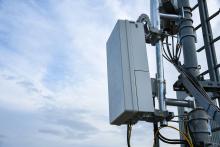The system can be managed through on online portal called VirtelaView so a manager can monitor device usage and send notifications to end users about usage or warnings that they're violating company policy. "It can tell you 'you're approaching your roaming limits' if you're traveling, 'you're approaching your data volume limits--stop downloading YouTube videos if you've got only 10 percent left and we're not paying for your overage,'" Weiner says.
An included service archives text messages from mobile devices, which can be subject to regulations requiring them to be saved if they relate to finance, health care or other sensitive issues. The Virtela MDM service operates on the same Enterprise Service Cloud platform that Virtela uses to deliver other cloud services to enterprises.
Virtela operates 50 data centers globally to deliver its cloud MDM, which is important for delivering the cloud service in certain countries, such as some in Europe, that prohibit personal data from being sent on networks outside their borders. The research firm TechNavio forecasts the global mobile device management market (both cloud and on-premise) to reach $391.3 million by 2014 and identifies some of the leading vendors as Sybase, Microsoft, IBM, HP and Symantec.
There are three features that enterprises usually insist on in an MDM solution, says John Engels, principal product manager in Symantec's Mobile Security Group. Devices should be protected by a PIN or password known only to the user; they should have a "remote wipe" capability, so that if a device is lost or stolen, the data on it can be deleted remotely; and they should include encryption so that data is protected as it is sent to or from the device and stored on it, he says.
See more on this topic by subscribing to Network Computing Pro Reports Under Pressure: How Business Tech Pros Handle Cloud, Mobility (subscription required).








